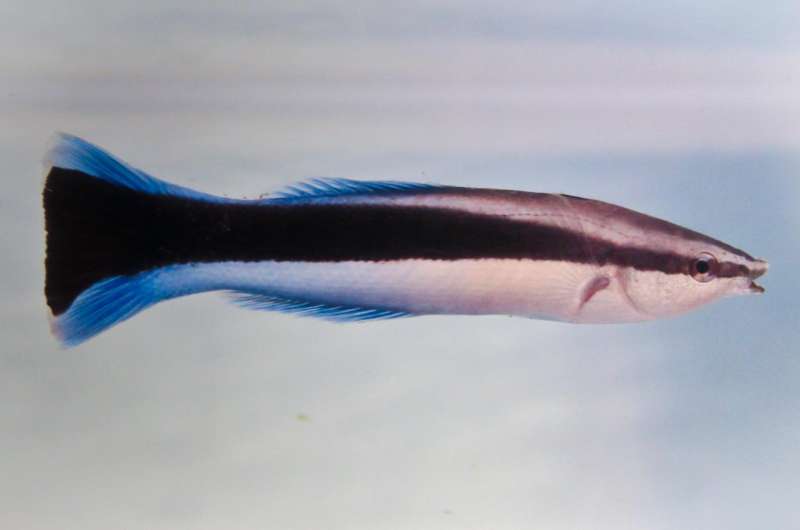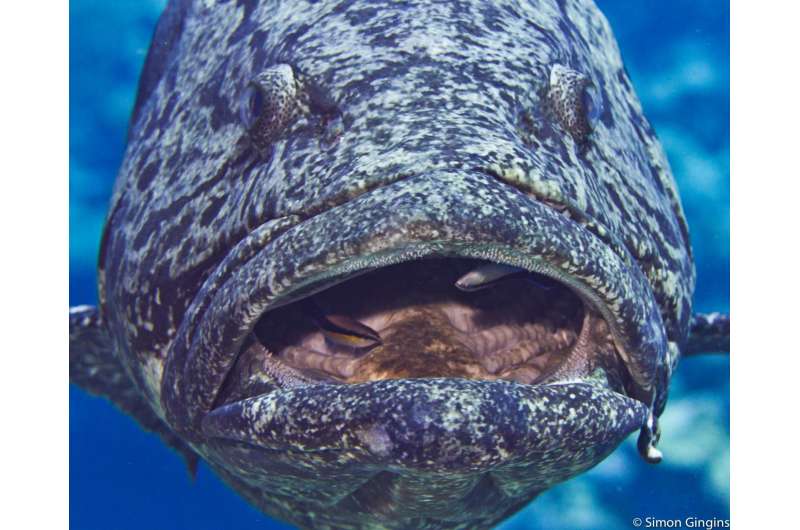Scamming Nemo: How cleaning fish are the 'con-men' of the coral reef

Cleaner wrasse perform a cleaning service for coral reef fish—namely eating parasites off their customer's skin. However, what the females of some species actually want is to lure in clients and 'cheat' them by biting off some tasty mucus before escaping.
This elaborate scam works much like how we would encounter in human societies. "When they are producing eggs, female cleaner wrasse desire mucus for particular nutrients that they wouldn't normally get from parasites, whereas males rarely cheat," explains researcher Dr Sandra Binning at the University of Neuchâtel, Switzerland. "Their clients don't want to lose this mucus, so the cleaners use 'tactical deception'—that is, attract them with the promise of an 'honest' parasite cleaning service."
Cleaners prefer to cheat bigger fish over smaller fish, because they can pick off more mucus from the large fish. In fact, they even provide honest services to smaller fish while the large fish watch, hoping to tactically entice them in. "There are limits though," adds Dr Binning. "Very big predator fish are never cheated because they can severely punish the cleaners for bad behaviour."
Dr Binning and her colleagues have recently found that blue-streaked cleaner wrasse in Australia fine-tune their deceptive tactics to their circumstances, such as the 'competitive market'. She elaborates: "In habitats with lots of cleaner wrasse close together, competition for clients is very high; cleaners need to keep a good reputation, so they engage in much more honest cleaning than if they were the only cleaners in town."
The team also tested the cheating behaviours of cleaners when under stress. "Female wrasse are stressed when they reproduce, and thus cheat more to get extra nutrients from mucus," clarifies Dr Binning. "Our research demonstrates that the cunning cleaners tailor this stress-induced cheating to their circumstances. For example, stressed cleaners simply cheat more when they have no competition, whereas high competition makes them much more deceptive when they are stressed."
This research makes significant advances in understanding the cognitive mechanisms behind cooperation, cheating and the use of tactical deception in the animal kingdom. Dr Binning concludes: "We know that birds and primates can make tactical decisions in different contexts. Our group's research increases our knowledge of how fish can also develop complex social relationships and cognition in coral reefs."

More information: This work will be presented by Dr Sandra Binning (University of Neuchâtel, Switzerland) at the annual meeting of the Society for Experimental Biology (SEB) in Brighton at 16.40 on Monday July 4, 2016.
Provided by Society for Experimental Biology




















